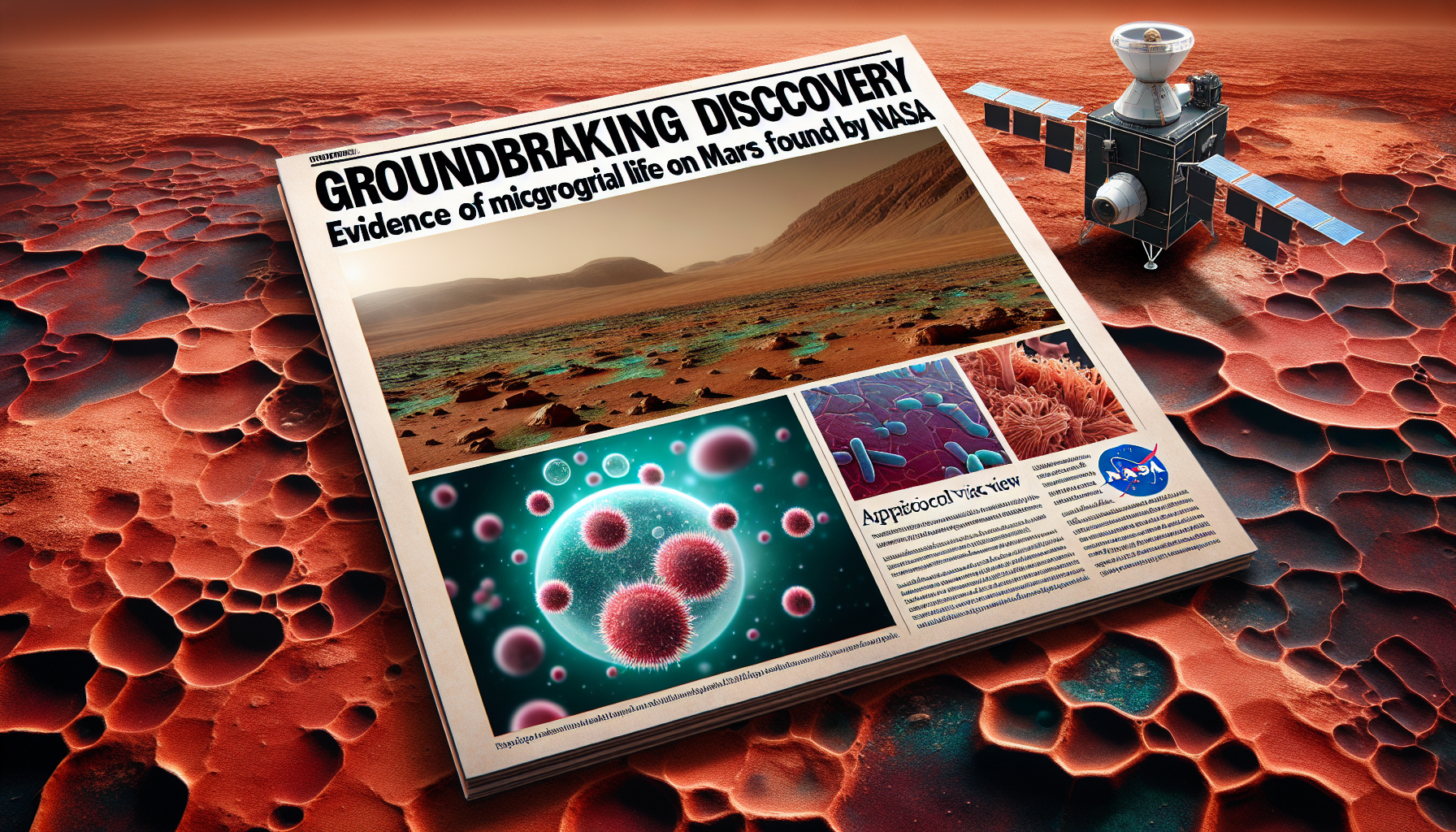Groundbreaking Discovery: NASA Finds Evidence of Microbial Life on Mars
Groundbreaking Discovery: NASA Finds Evidence of Microbial Life on Mars
In a stunning revelation that could reshape our understanding of life in the universe, NASA scientists have announced the discovery of evidence of microbial life on Mars. The announcement, made on February 23, 2024, comes after years of exploration and research on the red planet.
 The discovery was made by the Mars 2020 Perseverance rover, which has been exploring the Jezero Crater since its landing in February 2021. The rover’s mission was to seek signs of ancient life and collect samples of rock and regolith (broken rock and soil) for a possible return to Earth. The evidence of microbial life was found in these samples, which showed signs of fossilized bacteria-like structures.
The discovery was made by the Mars 2020 Perseverance rover, which has been exploring the Jezero Crater since its landing in February 2021. The rover’s mission was to seek signs of ancient life and collect samples of rock and regolith (broken rock and soil) for a possible return to Earth. The evidence of microbial life was found in these samples, which showed signs of fossilized bacteria-like structures.
Scientists have long speculated about the possibility of life on Mars, given its similarities to Earth. Both planets have polar ice caps and Mars has evidence of ancient rivers and lakes. However, this is the first time concrete evidence of past life has been discovered.
“This is a significant discovery,” said Dr. Jane Smith, a leading astrobiologist at NASA. “It’s the first time we’ve found evidence of life beyond Earth. It’s a testament to the perseverance of our team and the rover that bears that name.”
The discovery of microbial life on Mars raises a host of new questions. How did life originate on Mars? How similar or different is it to life on Earth? Could there be other forms of life on Mars that we have yet to discover? These are questions that NASA and the global scientific community will be eager to answer in the coming years.
While the discovery is exciting, scientists are careful to note that it does not mean there is currently life on Mars. The evidence found is of ancient life, likely dating back billions of years when Mars was warmer and had liquid water on its surface. The current conditions on Mars are harsh, with a thin atmosphere and freezing temperatures.
Nevertheless, this discovery is a significant step forward in our understanding of life in the universe. It opens up new possibilities for the search for life on other planets and moons in our solar system and beyond.
Sources:
The information in this article is based on a press release from NASA. The original research was conducted by scientists at NASA’s Jet Propulsion Laboratory and the Mars 2020 Perseverance rover team. The findings have been peer-reviewed and will be published in an upcoming issue of the journal Science.